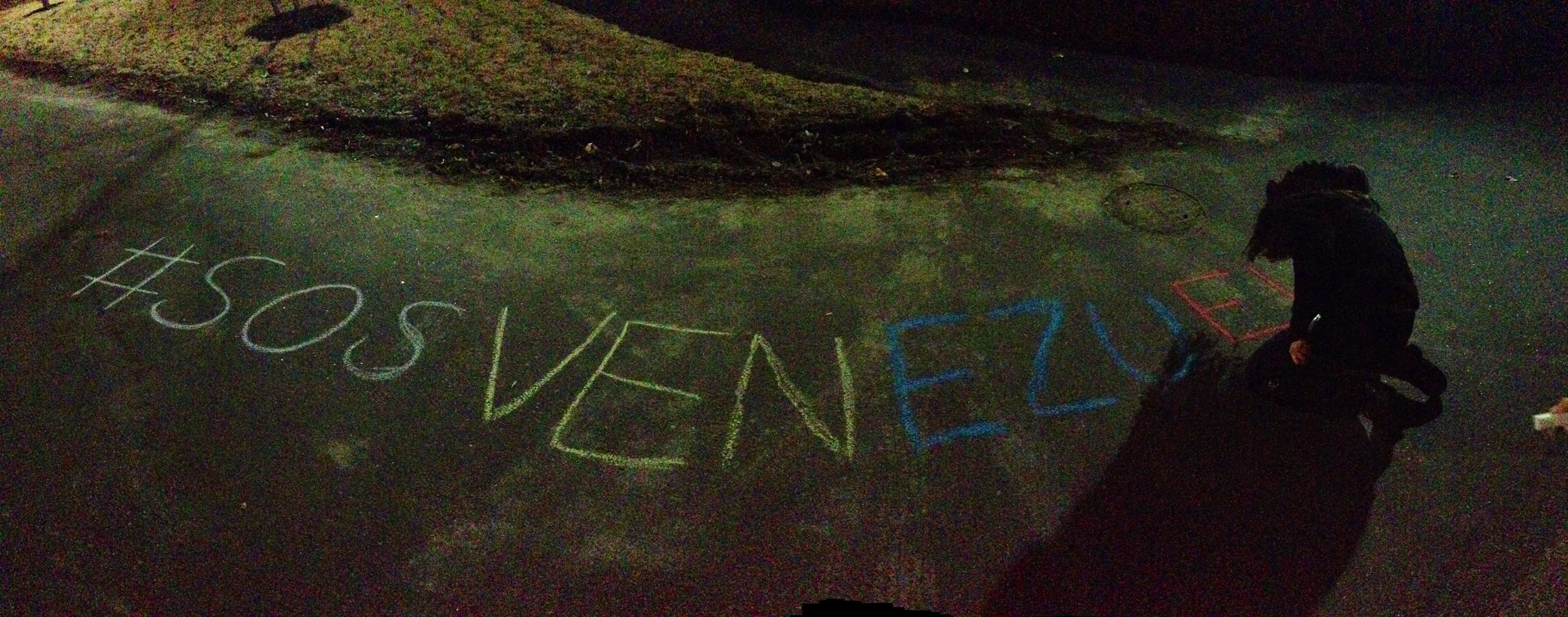As Venezuelan demonstrators have taken to the streets to protest President Nicolas Maduro, several Venezuelan students and allies at the College of William and Mary have launched their own campaign.
The William and Mary Students for Venezuela is a subset of the group SOS Venezuela. Members aim to educate students about the violence and scarcity that have intensified in Venezuela since Maduro was elected following former president Hugo Chavez’s death just over a year ago.
“The economic problems, the shortages of basic goods — it’s never been this bad,” Students for Venezuela member Ayumi Matsuda ’17 said.
In addition to the presidency, Maduro inherited an alarming crime rate. Inflation and shortages of food and medical supplies have also caused many Venezuelans to question their government.
Karina Brocco French ’16, another Students for Venezuela member, said she doubts Maduro’s ability to lead because he lacks political experience and higher education.
“We want peace for Venezuela,” Brocco French said. “Both the opposition and Maduro’s supporters, we’re all facing the same problems. We’re all facing the same violence and economic shortages, but personally I believe that Maduro should step down and let someone in a better position in terms of education take over.”
However, since Maduro was democratically elected, there is also a vocal group that affirms his right to the presidency, and specifically denounces the violence used to curb protestors as well as and the protestors’ condemnation of a legitimate government.
“If we’re going to say that we believe in democracy, we have to follow institutional processes,” Silvia Tandeciarz, Chair of Modern Languages and Literatures and Associate Professor of Hispanic Studies said. “Whether we like Maduro’s government or not, there was an election. He was democratically elected and we get into very dangerous territory when there’s a minority — and even if it’s a majority — that is through non-institutional channels, through things like protests, that is trying to overthrow an elected government.”
Situations like this are not new to Latin America. For Tandeciarz, the demonstrations in Venezuela echo right-wing-fueled protests of left-leaning, socialist governments that, in the past, have caused instability in Chile and Argentina. While it may seem instinctual to rush to the support of the oppressed, Tandeciarz warned that protestors are not always what they seem.
“People protesting in the streets [are not always] the downtrodden,” she said, referring to cases in which the privileged, upper-class right have also turned to protest in order to appeal to sympathizers of “the people.”
Tandeciarz and the Students for Venezuela members all advise students to stay informed, a task easier said than done when most news sources display a clear bias. Tandeciarz encourages students to consult a variety of publications to stay updated.
“It’s no surprise that we [the United States] are interested because of vast oil reserves and that we don’t have a very good track record in this country vis-à-vis left-leaning socialist regimes in Latin America,” she said. “So I think that respecting the self-determination of Venezuela in terms of dialogue and resolution, as well as safeguarding human rights is super important.”

